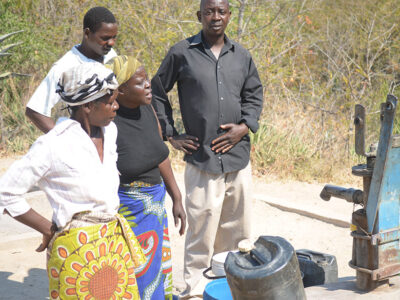Groundwater Crisis in Zimbabwe Brought On by Droughts

Richard Taylor, a professor of hydrogeology at University College London, in a report identified groundwater as an important and climate-resilient source of freshwater. Depletion of groundwater is especially relevant for tropical countries like Zimbabwe.
Amid the current prolonged drought in Zimbabwe, which started in 2018, fears abound that the boreholes that still have water will dry up before the start of the next rainy season in November or December.
“Water shortages are getting worse with each passing day,” said Danai Mutoro, a farmer in Chitora, a small farming village about 50 kilometers south of Zimbabwe’s eastern border city of Mutare. “We were expecting better rainfall during the 2019–2020 summer season; instead, the season was even worse than before.”Lovemore Muradzikwa, a farmer in Mafuke, a farming community on the outskirts of Mutare, said water shortages in his area have now reached critical levels.
Across Zimbabwe, more than 38% of the population depends on groundwater for household, agricultural, and industrial use.
Use Water Resources Sustainably
Washington Zhakata, director of climate change management in Zimbabwe’s Ministry of Lands, Agriculture, Water, Climate and Rural Resettlement, explained that underground water is recharged by normal seasonal rains, and Zimbabwe is getting less seasonal rainfall. The country has suffered severe recurrent droughts since 1992.
Seasonal rainfall has also not been consistent across the country, Zhakata said. The provinces of Manicaland, Masvingo, Matabeleland North, and Matabeleland South have been hardest hit by shortages of intraseasonal rainfall. “Some other areas experiencing this problem [of groundwater shortages] are those areas close to urban areas where consumption of water is very high and a lot of boreholes have been sunk,” he added.Intensification of human activity (including agriculture and industry) and land use changes (including industrial agriculture and urbanization) increase the demand for groundwater.
“Strategic use of groundwater for food security in a changing climate is becoming more and more important. It is important for farmers to utilize water resources sustainably to allow water seepage to greater depths,” Zhakata said.
